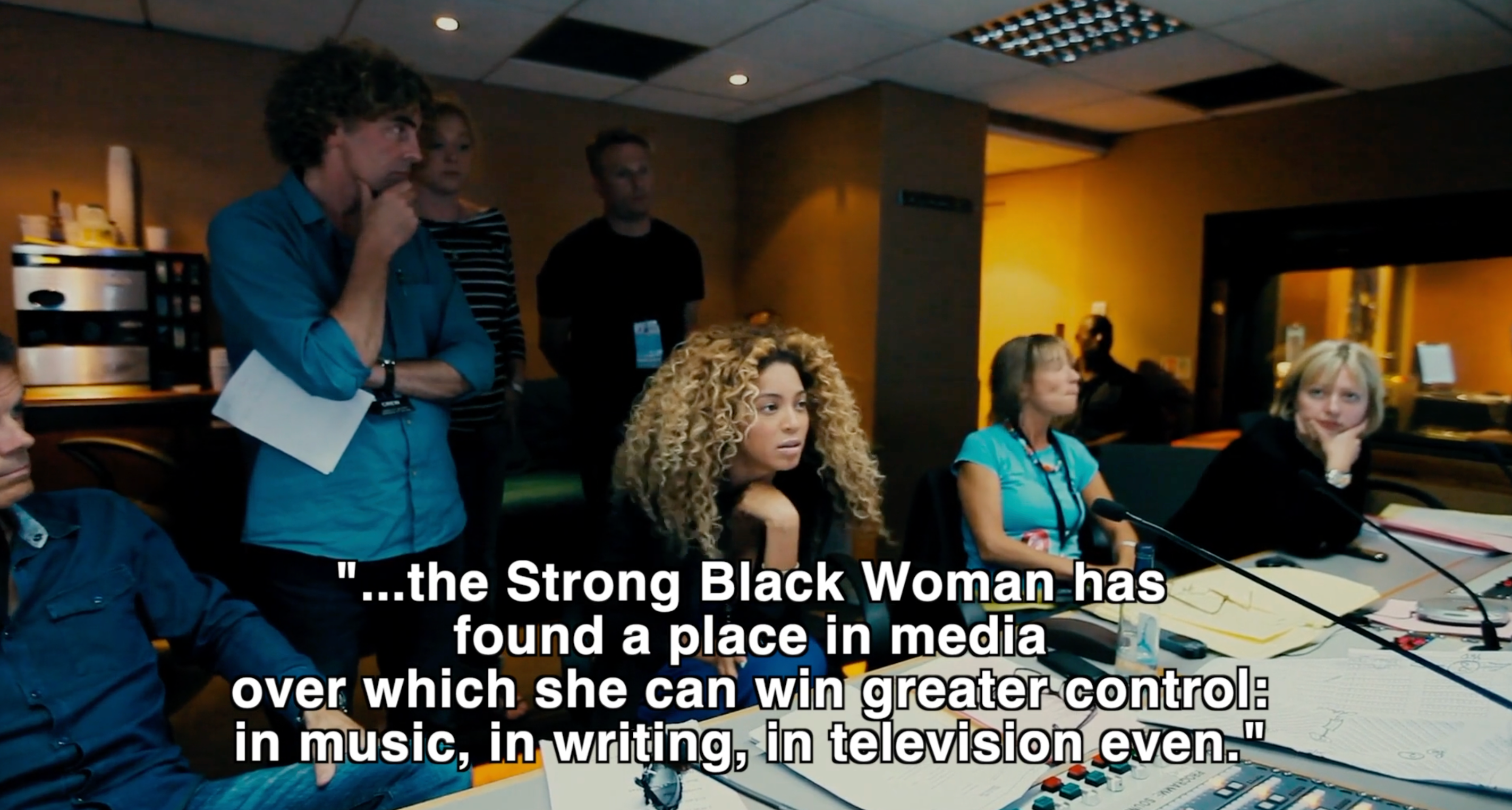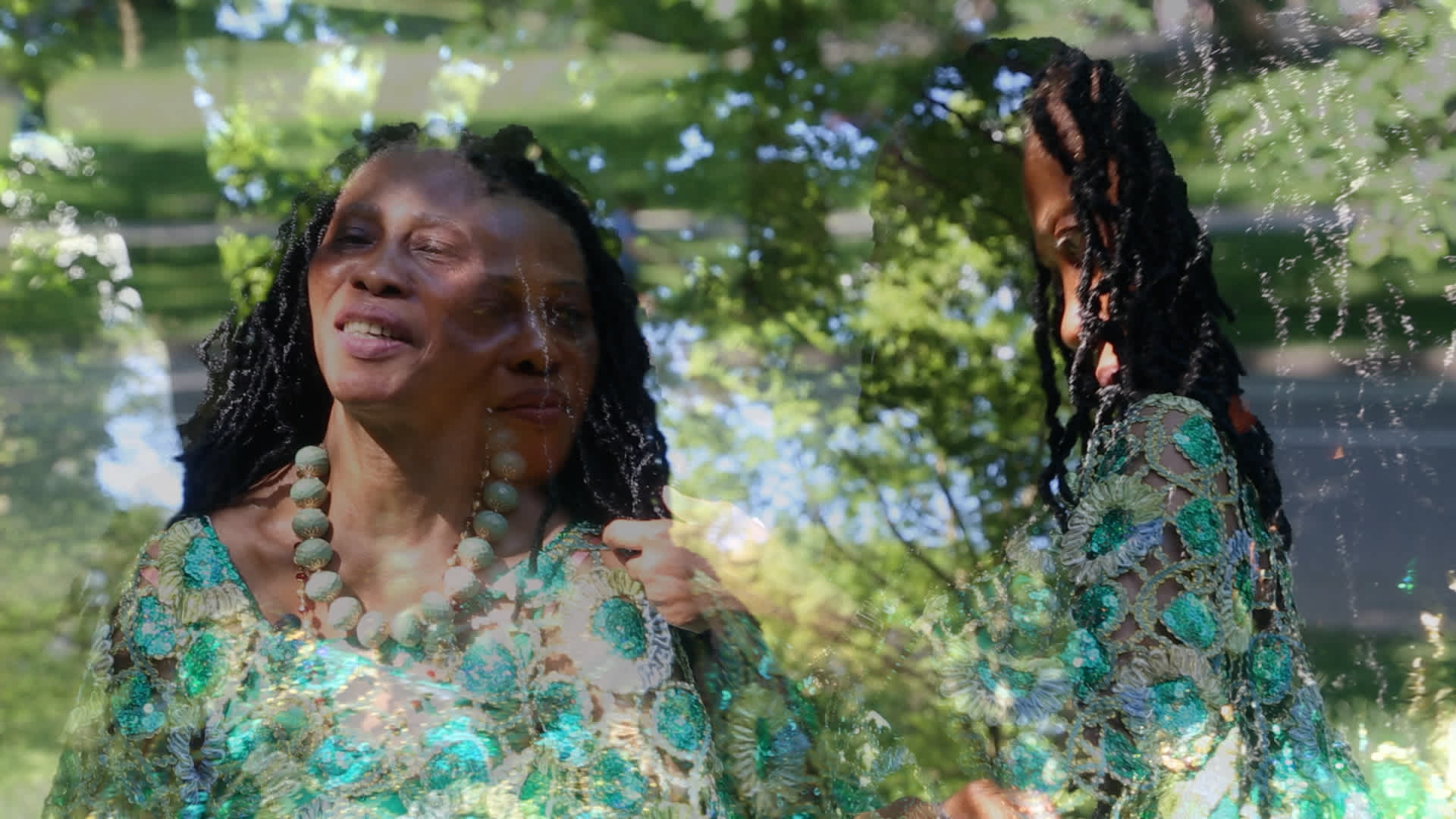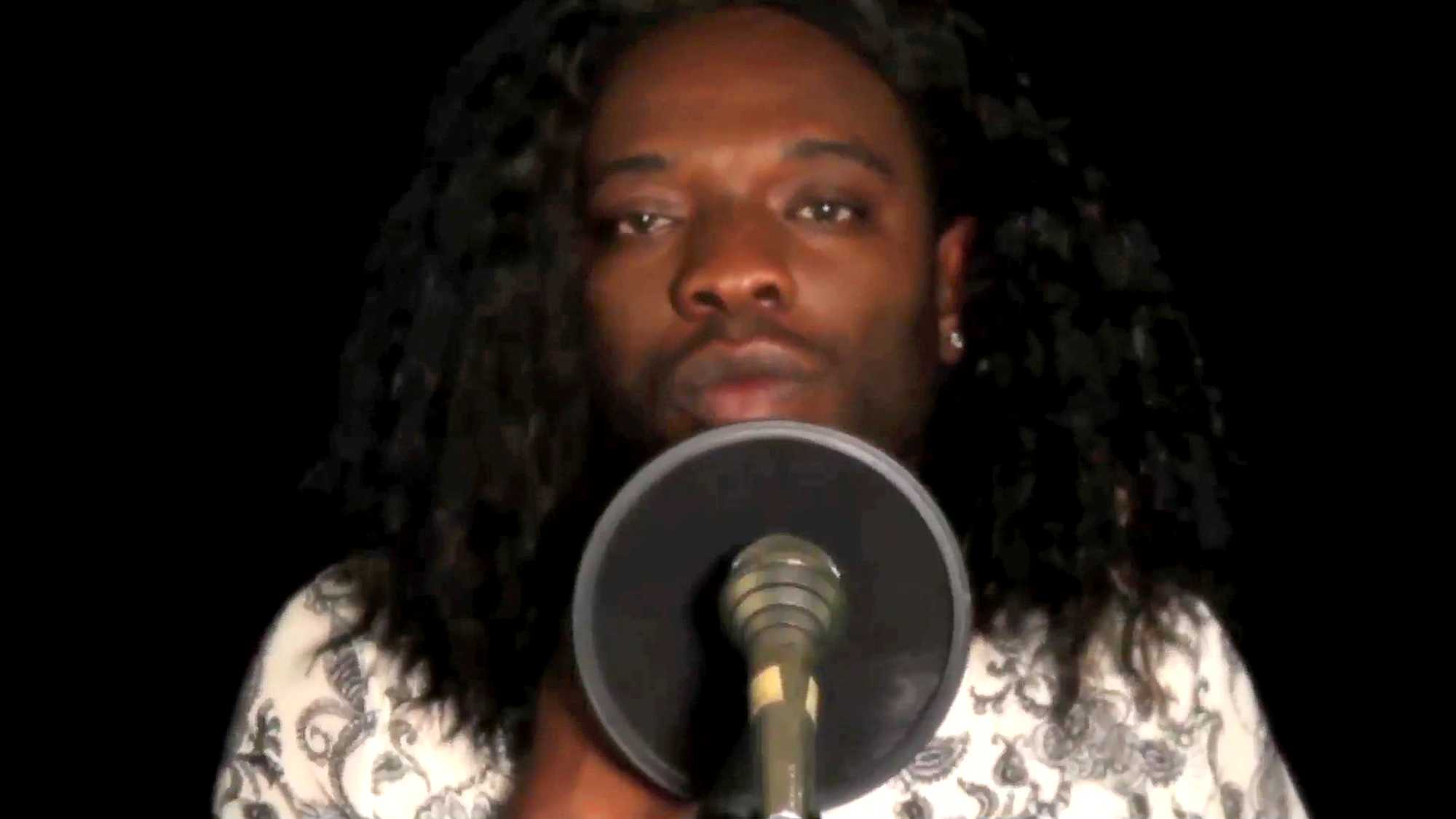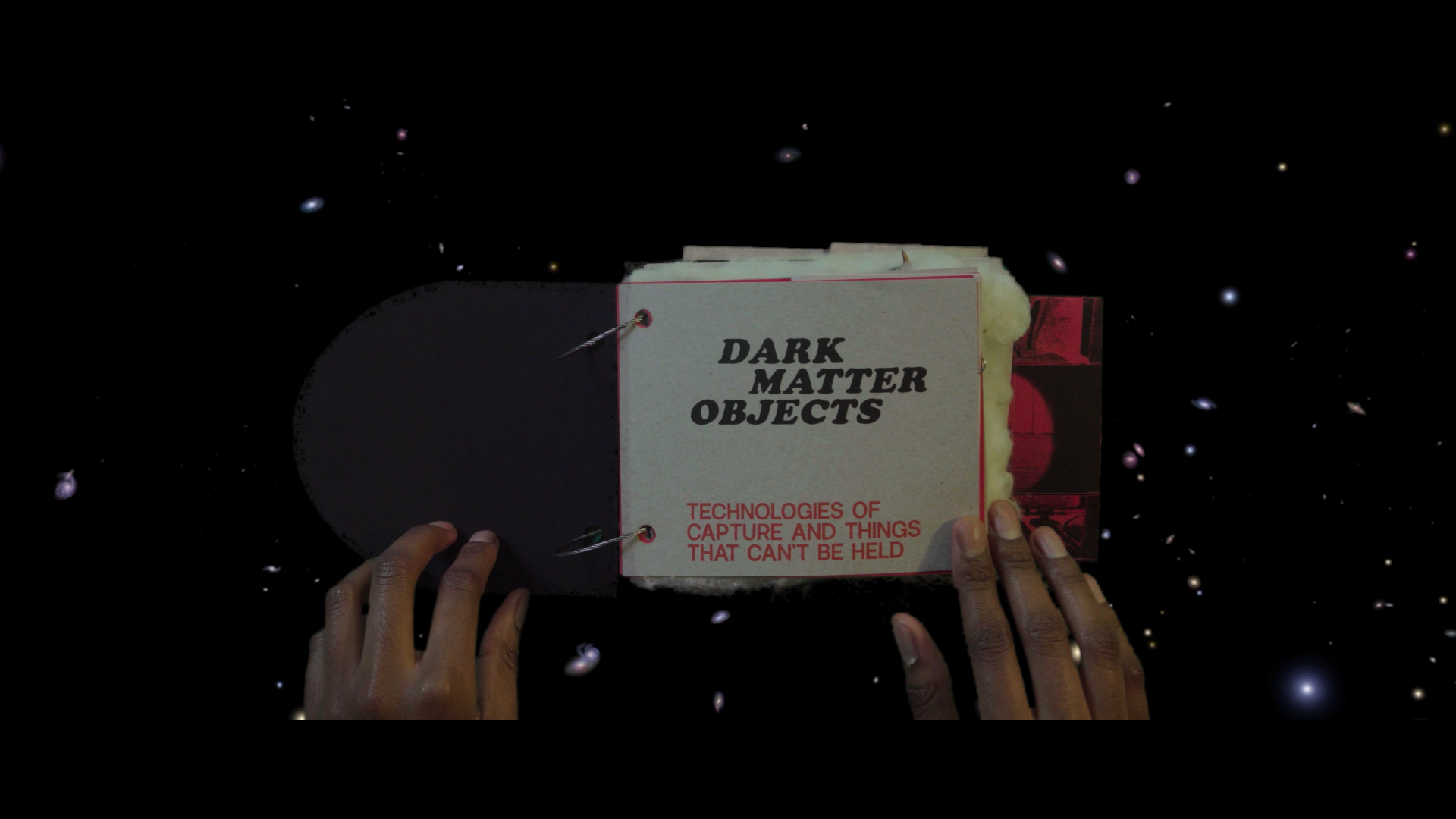
On View: June 18
The Video Viewing Room series presents recent video works and archival recordings. This online initiative revives The Kitchen's longstanding Video Viewing Room—a dedicated space within our buildings from 1975 through the early 1990s.
This Video Viewing Room presents Cyndii Wilde Harris' film Beyoncé: The Auteur (2024), an analysis on the films that Beyoncé has directed.
This presentation is accompanied by an introduction by Kyla Gordon, and a conversation between the artist and Gordon.
Cyndii Wilde Harris: Beyoncé: The Auteur is organized by Kyla Gordon, Curatorial Fellow 2024–2025, The Kitchen.
Cydnii Wilde Harris is an artist, filmmaker and scholar who explores visual culture, Black subjectivity, labor, politics of distribution, and cultural mythmaking in her practice. Her work has a distinctive style in short form essay videos that mix disparate kinds of media (from commercials, movies, old film reels, social media memes, etc) creating new meanings between unlikely juxtapositions which are framed by original texts. Harris’s films are exercises in arrangement and relation where meaning is created through their circulation in wider culture and their connection with other images. In Beyoncé: The Auteur (2024), Harris analyses the films that Beyoncé has directed and discusses the overarching themes that these works share. To date, Beyoncé is credited as director in nine films, including her most recent film, Renaissance: A Film By Beyoncé (2023) all with her production company Parkwood Entertainment. Part home movie, part music video, Harris’s film interrogates the politics of Beyoncé’s role as a director and the tension between her very controlled public image and the mystery of her private life.
1) What draws you to Beyoncé as a director? Why do you think that her role as a director has been largely overlooked despite her superstardom?
Honestly, I think what initially drew me to considering Beyoncé as a director was the backlash to the idea that she could be. The reception of Beyoncé's work by critics, fans, and anti-fans almost always has this interesting tension where the work's reception is informed by the individual's perception of her star persona. I think she would actually make a really interesting case study in attempting to apply the ideology of "separating the art from the artist," because I would almost argue you can't. She has such a culturally defined presence, is such an icon, that anything she puts her name on is first defined by her name being on it. And I think that makes it hard for some people to just listen to the music, or watch the film, or taste her whiskey lol without going into the experience saying either, "Of course it's brilliant, it's Beyoncé," or, "This is fine, and ya'll are doing too much because it's Beyoncé." So, to loop back around to your original question, I think her role as a director is overlooked because of her superstardom.
I also just really take umbrage with the idea that she couldn't possibly be a director, with the idea that there must be a cast of thousands somewhere behind her doing the real work while she slaps her name on it so she can collect accolades like infinity stones. First of all, film is largely a collaborative medium, so the idea that most, if not all, directors don't have collaborators is wild. Secondly, Beyoncé's music videos are rife with direct film references, from Sweet Charity (1969) to Daughters of the Dust (1991) to several different Westerns spanning decades for the album Cowboy Carter (2023). She's clearly a cinephile, but I guess it takes a cinephile to know a cinephile. And finally, there's a storied history of pop stars making the transition to directors, from Barbara Streisand to David Bowie to Prince, so she's in good company there. And while they've all received resistance to their work being taken as seriously as their non-musician/director contemporaries, the incredulity with which Beyoncé is met is often so tinged with misogynoir, to say nothing of the stigma of her being a Southern Black woman, that it's hard to not want to consider her, for me anyway.
2) It’s fairly common for musicians to direct and produce films, I know when we met we talked about a few famous examples. So what do you think it means for Beyoncé to direct her own films? What are the politics around this role for her?
Please see the second half of the answer to question one! Lol but ultimately, for Beyoncé to direct her own films is on the one hand extraordinary, and on the other incredibly expected. It’s extraordinary to think that once a person is able to bring their creative vision to life with such clarity and precision, and at the same time, no one should be that surprised at this stage of her career.
I think it’s most interesting to engage with her work if you take for granted that Beyoncé is truly the creative force that she has the audacity to claim to be. If you can disabuse yourself of that skepticism, or maybe even take it a step further and engage with her work with as much distance from her star persona as possible, and just watch Lemonade or Black is King, I think that’s where the most interesting reflections of her work lie.
3) What was it like to make this work? Can you talk about your approach to how you wove these movies together to tell this story? And also your choice to cite Toni Cade Bambara to frame this work?
Initially, my personal hook for creating this video essay was providing a response to that skepticism I mentioned earlier. And frankly, it became clear early on in the process that Beyoncé’s work directly engages with that skepticism, to the point that I would assign refutation as one of her core themes.
The physical process began with defining which films to cover. She’s technically credited as a director of nine films, but I decided to start with the HBO documentary Life is But a Dream. Not to discredit her directorial debut, I Am… World Tour, but at the time, it felt helpful to try to separate her tour films from the others. Homecoming and Renaissance are, of course, also tour films, but they’re also more clearly defined as documentaries, and then there was the consideration of how the different films were distributed. It just felt clear that Life is But a Dream was a real inflection point in how she was constructing and distributing her films, so I started there and chose not to include the tour films that were more pro-cams than documentaries. Now, I also chose to include Beyoncé Presents: The Making of the Gift, the promotional special that aired on ABC to plug the live action Lion King album, The Gift, so this clearly wasn’t a perfectly defined system lol but I’m a bit of a completionist, so if I ever revisit this concept, I’d likely include all nine.
Outside of the technical aspects, in considering her work all together as a filmography, her themes and the evolution of those themes over time became clear pretty early. So, once I’d identified Beyoncé’s themes, I set out to identify Black women scholars whose work aligned thematically, and that is how we arrived at THEE incomparable Toni Cade Bambara.
4) Would you say that as viewers we are learning anything new about Beyoncé through the films she directed, or do you think these works already support the existing circulation of her image and the cultural mythology around it?
That’s a great question, and a difficult one to answer. Beyoncé the icon is monoculture whether you like her or not, and I think audience opinion about that status often informs audience reception of her work. So are viewers learning anything new about Beyoncé through her films? If they care to or are able to. She’s not just revelatory in what she shares about her personal life, but also in the cultural artifacts she chooses to include or cite, in the genres she engages with, in her use of lighting, costumes, sound and editing, just like any other director. So, there’s absolutely so much to be gleaned about what she’s trying to communicate through her work. I think an interesting question is how much we should be reading into her personal life in a parasocial way into her work, even in the documentaries. Can you ever truly know an artist through their work? I’m not sure, but I do believe you can glean what they want you to know about them through their work. And I think that’s pretty cool.
BIO
Cydnii Wilde Harris (she/her) is a film scholar and video essayist whose work largely concerns the representations of marginalized communities. She is particularly concerned with the depictions of Black women and femmes in film and television.
Video Viewing Room was initiated with the support of the NYC COVID-19 Response and Impact Fund in The New York Community Trust; annual grants from Lambent Foundation Fund of Tides Foundation and Howard Gilman Foundation; and in part by public funds from New York City Department of Cultural Affairs in partnership with the City Council and New York State Council on the Arts with the support of Governor Andrew Cuomo and the New York State Legislature.



